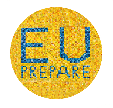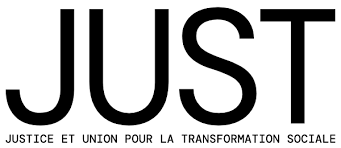Empowering Refugees and Migrants for Successful Integration
Innovative Curriculums and Online Tools Foster Smooth Transition to European Union
In an effort to support families of refugees, migrants, and asylum seekers during their journey of resettlement in the European Union, the EU-Prepare partnership has launched a groundbreaking initiative. With a focus on safe and legal pathways, EU-Prepare aims to provide comprehensive assistance to individuals before, during, and after their arrival, helping them integrate their skills and cultural heritage with European civic values and priorities.
Central to this initiative is the development of innovative bilingual curriculums tailored to the linguistic skills of the target groups. These curriculums propose a practice-based and playful approach, combining linguistic education with psychological, emotional, and cultural preparation necessary for seamless integration into their host countries.
The learning tools envisioned by EU-Prepare build upon the valuable skills acquired during the individuals’ previous life experiences. They are designed to be adaptable to the new environment and lifestyle, while also facilitating the acquisition of new skills. These tools will be seamlessly integrated into an online curriculum that simulates realistic situations through visually engaging and audiovisual resources.
One such resource is a series of cartoons and short animations that represent everyday encounters refugees, migrants, and asylum seekers are likely to experience during their initial months in European Union countries. These visual stories will be supplemented by interactive online games that allow users to practice newly acquired knowledge of civic values, environmental protection, and digital skills. By engaging with these tools, individuals will gain familiarity with the host country’s language, enabling them to overcome daily challenges such as shopping, traveling, and seeking and sharing information.
As part of the program, participants will gradually become acquainted with the use of the internet and various online tools, helping them integrate into local digital practices. To ensure broad accessibility, printable versions of the curriculum will be made available for distribution by social workers, who provide essential support in areas such as accommodation, financial assistance, and administrative tasks. These materials will transmit vital information about local values, practices, and lifestyle adjustments, enabling individuals to begin their stay within European countries on a solid foundation.
The EU-Prepare curriculum is structured around three key priorities that align with the partnership’s objectives. The first priority focuses on promoting good practices in environmental protection and healthcare, including recycling, waste collection, and fostering a positive relationship with nature and animals. The second priority centers on fostering an understanding of civic values and engagement, encouraging respect for diversity and democratic principles, while nurturing a thirst for knowledge and sharing. Finally, the third priority emphasizes the use of digital tools in everyday life, equipping participants with the skills to execute administrative tasks and promoting digital literacy.
By providing practical tools, linguistic support, and fostering cultural integration, the EU-Prepare partnership aims to empower refugees, migrants, and asylum seekers as they navigate the transition to their new lives within the European Union. This innovative approach not only ensures a smoother resettlement process but also strengthens social cohesion and promotes a sense of belonging for all individuals, irrespective of their backgrounds. Through this united effort, the EU-Prepare partnership is sowing the seeds of a more inclusive and welcoming Europe.
-
Results:



